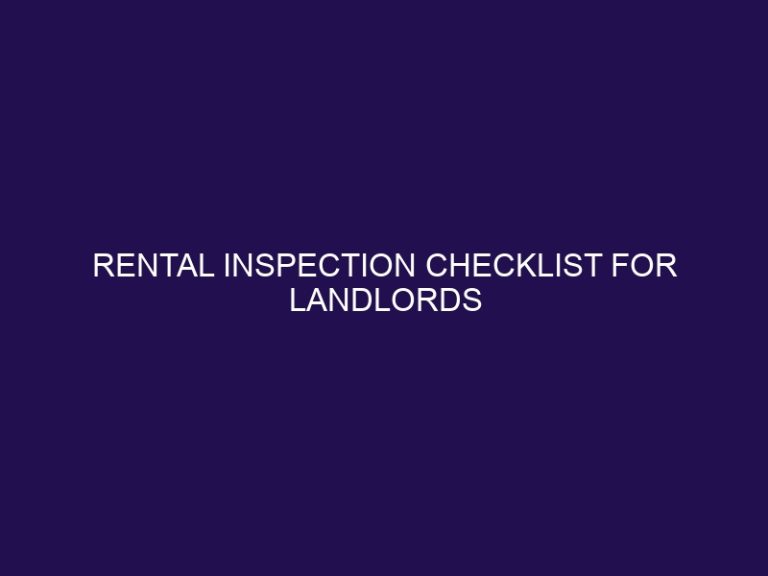Maximizing Property Profit: The Benefits of a Property Management Company
Are you a property owner who is considering hiring a property management company to assist in overseeing your real estate investments? If so, you’re in the right place. In this comprehensive article, we’ll explore the numerous advantages of utilizing a property management company. From minimizing tenant turnover to ensuring rent is paid on time and handling maintenance and repairs, property management companies offer a range of benefits that can make your life as a property owner much easier. We’ll also delve into the reasons why people choose to use property management companies and what property management actually entails.
If you’ve ever wondered whether hiring a property management company would benefit you, this article will provide the information you need to make an informed decision. Let’s explore the world of property management and discover how it can work to your advantage.
Key Takeaways:
The Benefits of Using a Property Management Company
A property management company offers numerous benefits to landlords and property owners, providing comprehensive management services for rental properties, addressing maintenance, legal issues, and ensuring reliable tenant relations.
One of the primary advantages of partnering with a property management company is the efficient tenant management they offer. They handle tenant screening, lease agreements, rent collection, and addressing tenant concerns, relieving the landlord of these time-consuming tasks. Property management companies ensure legal compliance by staying updated with landlord-tenant laws, handling evictions if necessary, and providing support during any legal disputes.
Property management companies oversee property upkeep and maintenance, ensuring that the rental units are well-maintained, addressing repair needs promptly, and coordinating inspections to maintain the property’s value. This contributes to the satisfaction of tenants and minimizes turnover, resulting in consistent rental income for the landlord.
Point of Contact for Tenants
A property management company serves as the primary point of contact for tenants, facilitating seamless communication and addressing their inquiries and concerns related to the rental property.
Effective communication is essential in ensuring that tenants feel heard and valued. The property management company acts as a liaison, relaying important information between landlords and tenants and maintaining open lines of communication. By promptly responding to maintenance requests and concerns, the company helps to create a positive living experience for tenants.
The property management company plays a crucial role in issue resolution. By swiftly addressing any issues that arise, they can prevent minor problems from escalating into larger disputes, thereby fostering a harmonious landlord-tenant relationship.
Ultimately, tenant satisfaction is paramount, and the property management company plays a pivotal role in achieving this. By providing exceptional customer service, addressing concerns promptly, and ensuring that the rental property meets the tenants’ needs, the company contributes to a positive and mutually beneficial rental experience.
Less Chance of Tenant Turnover
Engaging a property management company reduces the likelihood of tenant turnover, as they focus on maintaining positive tenant relations and addressing their needs, promoting long-term occupancy and stability for rental properties.
Property management companies contribute significantly to tenant retention and satisfaction through their proactive measures and tenant-focused approach. By conducting regular property inspections, anticipating and addressing maintenance issues, and providing prompt, responsive solutions, these companies help ensure that tenants feel valued and that their living environment remains comfortable and enjoyable.
In addition, property managers are dedicated to offering tenant-focused services, such as creating engaging community events, fostering open communication channels, and promptly addressing any concerns or requests. These efforts contribute to enhancing tenant satisfaction and building a sense of belonging within the rental community.
By engaging with a property management company that prioritizes tenant retention and satisfaction, landlords can effectively reduce turnover rates, minimize vacancies, and maximize property occupancy, ultimately leading to a more stable and profitable real estate investment.
Fewer Legal Problems
Property management companies help mitigate legal issues for landlords by ensuring compliance with property codes, laws, and regulations, reducing the risk of legal disputes and liabilities associated with rental properties.
These companies are equipped to stay updated with the latest property laws and regulations, facilitating adherence to tenant rights and fair housing laws. They establish and enforce transparent leasing agreements and rental policies, ensuring fair treatment of tenants and compliance with legal obligations.
In case of disputes, property management companies play a critical role in resolving conflicts through structured dispute resolution procedures, which can include mediation, arbitration, and legal representation if necessary. By taking a proactive stance on legal compliance and risk management, these companies provide peace of mind for property owners while fostering harmonious landlord-tenant relationships.
Ensures the Rent is Paid on Time
Property management companies play a crucial role in ensuring timely rent collection for landlords, implementing efficient payment procedures, and addressing any rent-related concerns on behalf of property owners.
These companies streamline rent payment processes by providing various options for tenants to submit payments, such as online portals, electronic fund transfers, or traditional methods like check or money order. They manage delinquent accounts by enforcing late fees, issuing collection notices, and initiating legal proceedings if necessary.
Property management firms prioritize financial transparency by furnishing detailed reports on rent collection, expenses, and profits to landlords. This level of transparency instills trust and accountability in the landlord-tenant relationship, fostering a positive financial environment.
Lower Maintenance Costs
Property management companies help minimize maintenance costs for landlords by coordinating regular property upkeep, addressing repairs promptly, and implementing cost-effective maintenance solutions for rental properties.
This proactive approach to property maintenance ensures that small issues are addressed before they escalate, ultimately reducing the need for costly repairs. Through vendor management, property management companies establish relationships with reliable contractors and negotiate favorable rates for maintenance services, further contributing to cost savings. They devise comprehensive maintenance plans that outline scheduled inspections and upkeep activities, allowing for proactive budgeting and timely property maintenance. These comprehensive strategies contribute to improving property value and tenant satisfaction while effectively managing maintenance costs.
Why do People use Property Management Companies?
The utilization of property management companies is driven by the need for efficient rental property management, streamlined tenant relations, and professional oversight of property maintenance, benefiting both landlords and tenants.
Property management companies offer expertise in marketing, tenant screening, rent collection, property maintenance, and legal compliance, relieving landlords of these time-consuming tasks.
They ensure that tenants have a point of contact for any issues or maintenance requests, leading to improved tenant satisfaction and retention.
This professional management also helps in maintaining the value and appeal of the property, contributing to long-term investment success for property owners.
Higher Quality Tenants with Property Management
Property management companies facilitate the acquisition of higher quality tenants for rental properties through comprehensive tenant screening, verification processes, and tenant placement strategies, ensuring reliable and responsible occupants.
Tenant screening is a crucial part of the tenant selection process, as it involves thorough background checks on potential tenants, including credit history, income verification, rental history, and criminal background checks. This intricate process ensures that only trustworthy and financially stable individuals are selected as tenants, minimizing the risk of property damage, late rent, or eviction.
Property management companies handle the meticulous administration of lease agreements, setting clear terms and obligations for both landlords and tenants, ultimately fostering mutually beneficial landlord-tenant relationships.
Shorter Vacancies with Property Management Companies
Property management companies work to minimize property vacancies by implementing effective marketing, tenant retention strategies, and prompt property turnover processes, ensuring minimal downtime and maximizing rental income for landlords.
These companies employ various marketing initiatives to attract potential tenants, utilizing online listings, social media campaigns, and targeted advertising to reach a wider audience. They focus on building and maintaining strong relationships with current tenants through lease renewal programs and responsive communication, increasing the likelihood of tenants renewing their leases.
Efficient turnover procedures are also crucial, as swift transitions between tenants reduce vacancies and keep rental income flowing steadily. By addressing these key areas, property management companies play a vital role in optimizing property occupancy and maximizing rental income.
Assistance with Taxes and Paperwork from a Management Company
Property management companies provide valuable assistance with tax obligations and paperwork for landlords, ensuring compliance with tax agencies, accurate financial reporting, and streamlined administrative processes related to rental properties.
They can take on the responsibility of tax filings, simplifying the complex process of meeting tax deadlines, calculating property tax deductions, and ensuring that all necessary documentation is submitted accurately and on time. Property management companies maintain detailed financial records, financial documentation, and reporting, offering landlords access to comprehensive financial statements and reports, easing their burden of managing these administrative tasks.
Maintenance and Repairs with Rental Management
Rental management companies oversee maintenance and repair tasks for rental properties, coordinating inspections, addressing property issues, and ensuring the implementation of cost-effective maintenance solutions to preserve property value.
Proactive maintenance planning is a pivotal aspect of rental management. By scheduling regular inspections and addressing small issues before they escalate, these companies prevent larger, costlier problems from arising. Effective vendor coordination is also integral; skilled professionals must be promptly engaged to handle maintenance and repair tasks. Strategic property improvement strategies are employed to enhance property value and attractiveness to potential tenants, ultimately maximizing the property’s rental income potential.
What Is Property Management?
Property management encompasses the oversight, operation, and administration of real estate properties, involving adherence to property codes, laws, and regulations, and the facilitation of landlord-tenant relationships for rental properties.
It involves various core responsibilities such as property maintenance, rent collection, tenant screening, and lease enforcement. Proper property management ensures that the rental units are well-maintained, tenants’ needs are met, and all legal obligations are fulfilled. The legal considerations in property management include understanding fair housing laws, property disclosure requirements, eviction procedures, and lease agreements. Compliance with these legal aspects is crucial for smooth property operations and tenant satisfaction. With the rising demand for rental properties, efficient property management plays a vital role in ensuring the smooth functioning of real estate investments.
Will Hiring Property Management Companies Benefit Me?
Engaging property management companies can significantly benefit landlords by providing professional property oversight, efficient tenant management, and cost-effective maintenance solutions, enhancing the overall performance and profitability of rental properties.
Property management companies bring a wealth of experience and knowledge in handling the day-to-day operations, ensuring that properties are well-maintained and properties stay occupied with reliable tenants. They also have established networks of contractors, vendors, and service providers, allowing them to negotiate better rates for maintenance and repairs, thereby lowering operational costs.
Property management companies have robust screening processes in place to find trustworthy and reliable tenants, reducing the risk of rental income loss and property damage. Their expertise in dealing with tenant issues, lease agreements, and legal matters can also prevent potential disputes and ensure smooth landlord-tenant relationships, contributing to a positive rental experience.
What Does A Property Manager Do?
A property manager is responsible for overseeing various aspects of rental properties, including property maintenance, tenant relations, lease management, and compliance with property codes, laws, and regulations.
Property managers play a crucial role in maintaining the physical and financial aspects of rental properties, ensuring that they are well-maintained and in compliance with all applicable laws and regulations. They are responsible for handling maintenance issues, coordinating repairs, and conducting regular property inspections to identify and address any maintenance concerns promptly.
Property managers are tasked with fostering positive tenant relations by addressing any concerns or complaints promptly, handling tenant inquiries, and ensuring a smooth and harmonious living environment for all tenants. They oversee lease agreements, including lease renewals, rent collection, and enforcement of lease terms.
Legal compliance is a significant aspect of a property manager’s role, requiring them to stay updated on property laws and regulations, including fair housing laws, eviction procedures, and property safety codes. They must ensure that the rental property meets all legal requirements, obtain necessary permits, and handle any legal issues that may arise.
Rent Collection
Rent collection is a key responsibility of property management companies, ensuring timely and efficient collection of rent payments from tenants, and providing accurate financial reporting to landlords for their rental properties.
Property management companies employ various methods to streamline the rent collection process, including online payment portals, direct deposits, and electronic fund transfers. These technologies enable tenants to conveniently submit their rent payments while allowing landlords to receive funds promptly. Companies focus on fostering positive tenant-landlord relationships to encourage on-time payments, setting clear expectations, and offering support for any challenges that may arise.
Regular Property Maintenance
Property management companies prioritize regular property maintenance, scheduling inspections, addressing repairs promptly, and implementing proactive maintenance strategies to preserve the value and condition of rental properties.
Regular property maintenance managed by property management companies is crucial for ensuring the longevity and desirability of rental properties. By conducting routine inspections, addressing maintenance issues promptly, and implementing proactive strategies, property managers can prevent minor problems from escalating into costly repairs.
Property management companies are responsible for coordinating with various vendors to ensure that repairs and maintenance tasks are handled by reliable professionals in a timely manner. This seamless coordination helps in maintaining the property’s condition and creating a positive experience for tenants.
Property management companies focus on devising property improvement strategies that enhance the appeal and functionality of rental properties. By investing in upgrades and renovations, they can attract quality tenants and maximize the property’s value.
Dealing with Defaulters
Property management companies handle defaulters and delinquent tenants by implementing appropriate procedures, negotiations, and legal measures on behalf of landlords, ensuring swift and effective resolution of payment issues for rental properties.
When dealing with defaulters, property management companies first attempt to resolve the matter through amicable negotiations and payment arrangements. If these efforts fail, they initiate formal debt recovery processes, which may include sending demand letters or notices to the tenants.
In cases of continued non-payment, the property management company may advise the landlord on taking legal actions such as filing for eviction or pursuing a lawsuit for unpaid rent and damages.
Sourcing Tenants
Property management companies are responsible for sourcing reliable and suitable tenants for rental properties, utilizing comprehensive screening processes, tenant placement strategies, and adherence to fair housing regulations.
One of the key aspects of tenant sourcing is tenant screening, which involves conducting thorough background checks to assess the prospective tenant’s rental history, employment status, creditworthiness, and criminal background. This process aims to ensure that the tenants can meet their financial obligations and maintain the property responsibly.
Property management companies are tasked with managing lease agreements, ensuring that the terms and conditions are clearly outlined and in compliance with local and state laws. This involves delicate negotiations and effective communication to address any concerns or special requests from both the tenant and the landlord.
Bookkeeping
Property management companies handle the bookkeeping and financial records for landlords, providing accurate and transparent financial reporting, and streamlining administrative processes for rental properties.
They are responsible for maintaining detailed financial documentation, including income and expense records, reconciling bank statements, and managing accounts payable and accounts receivable. They ensure regulatory compliance by keeping up-to-date with tax laws, landlord-tenant regulations, and other financial requirements affecting rental properties.
Property management companies also play a crucial role in facilitating tax reporting, which involves preparing and filing tax returns, providing necessary financial statements and documentation for tax purposes, and addressing any financial inquiries or audits from tax authorities.
Other Things To Consider
There are various additional aspects for landlords to consider when engaging property management companies, including service fees, contract terms, and the scope of services offered, to ensure a mutually beneficial partnership.
When evaluating property management companies, landlords should carefully review the pricing structures to understand how fees are calculated. Some companies may charge a flat monthly fee, while others base charges on a percentage of the property’s rental income.
Additionally, service agreements require close inspection, ensuring that they align with the landlord’s expectations and needs. It’s equally important to assess the service offerings provided by property management companies, such as tenant screening, maintenance, rent collection, and property inspections. By thoroughly examining these elements, landlords can make informed decisions that lead to successful property management partnerships.
The Cost Of Property Management
The cost of property management encompasses service fees, maintenance expenses, and administrative costs, which vary based on the scope of services provided, property size, and specific landlord requirements.
For property management services, the pricing structure typically includes a management fee that can range from 8% to 12% of the monthly rental income, although this can vary by location and company. In addition, there may be additional charges for leasing, evictions, and property inspections.
Maintenance expenses are a significant aspect, covering repairs, landscaping, and ongoing upkeep. Administrative costs involve the day-to-day management tasks, such as bookkeeping, legal compliance, and tenant communications, which are essential for efficient property management operations.
Frequently Asked Questions
What are the benefits of using a property management company?
There are several benefits to using a property management company. These include:
- Efficient management of your property: A property management company will handle all aspects of managing your property, from finding tenants to collecting rent and handling maintenance requests. This frees up your time and ensures that your property is well taken care of.
- Expertise and experience: Property management companies have years of experience and expertise in managing properties. They are knowledgeable about local laws and regulations, and can handle any issues that may arise.
- Marketing and advertising: Property management companies have the resources to effectively market your property and find high-quality tenants. This can help reduce vacancies and increase your rental income.
- Screening tenants: A property management company will handle the process of finding and screening potential tenants. This includes running background checks, credit checks, and verifying income, which can help you find reliable and responsible tenants.
- Rent collection: One of the biggest benefits of using a property management company is that they will handle rent collection for you. This ensures that you receive your rental income on time and eliminates the need for confrontations with tenants over late or missed payments.
- Legal protection: Property management companies can provide you with legal protection by ensuring that all rental agreements and leases comply with local laws and regulations. In case of any legal disputes, they can also handle the process on your behalf.
How does using a property management company save me time?
Using a property management company can save you time in several ways:
- Handling tenant requests and complaints: With a property management company, you won’t have to deal with phone calls or emails from tenants about maintenance issues or other concerns. The company will handle these requests on your behalf, freeing up your time for other tasks.
- Finding and screening tenants: This can be a time-consuming process, especially if you have multiple properties. A property management company will handle all aspects of finding and screening tenants, saving you the time and effort involved in this process.
- Rent collection: Collecting rent from tenants can be a hassle, especially if you have multiple properties. With a property management company, you won’t have to worry about chasing after late or missed payments.
- Handling legal matters: Property management companies have knowledge and experience in dealing with legal matters, which can save you time and stress.
What types of properties can benefit from using a property management company?
Property management companies can benefit all types of properties, including:
- Residential properties such as single-family homes, condos, and apartments
- Commercial properties such as office buildings, retail spaces, and industrial properties
- Vacation rentals such as beach houses, cabins, and villas
How can a property management company help me increase my rental income?
Property management companies can help you increase your rental income in several ways:
- Effective marketing and advertising: With their resources and expertise, property management companies can effectively market your property and attract high-quality tenants.
- Setting competitive rental rates: Property management companies stay up-to-date on market trends and can help you set the right rental rates for your property, maximizing your income.
- Reducing vacancies: By effectively managing your property and finding reliable tenants, property management companies can help reduce vacancies and ensure a steady stream of rental income.
- Handling maintenance and repairs: By addressing maintenance issues promptly, property management companies can help maintain the value of your property and prevent costly repairs in the future.
Do I still have control over my property if I use a property management company?
Yes, you still maintain control over your property when you use a property management company. You will have final say on important decisions such as approving tenants and setting rental rates. The property management company will simply handle the day-to-day tasks of managing your property, allowing you to focus on other aspects of your life or business.
What should I look for in a property management company?
When choosing a property management company, it’s important to consider the following factors:
- Experience and expertise in managing properties similar to yours
- Reputation and references from other property owners
- Services offered and fees charged
- Communication and responsiveness
- Licensing and insurance
- Methods for handling tenant requests and complaints
- Availability for emergencies and after-hours support







